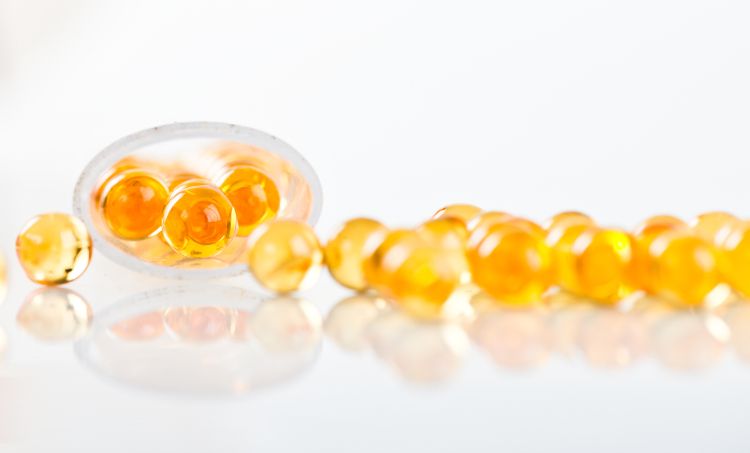Tocotrienol from palm may slow the progression of diabetic kidney disease, says new study
Supplementation with a full-spectrum palm tocotrienol complex may slow the progression of diabetic kidney disease in those with type 2 diabetes, a new study published in Nutrients found.
Photo © Shutterstock.com/Valeri Potapova

Supplementation with a full-spectrum palm tocotrienol complex (EVNol Suprabio by ExcelVite; Edison, NJ) may slow the progression of diabetic kidney disease in those with type 2 diabetes, a new study published in Nutrients1 found. Patients with diabetic kidney disease have an increased risk of cardiovascular disease events, hospitalization, cognitive dysfunction, and poor quality of life, say the researchers. In the randomized, double-blind, placebo-controlled trial, 45 patients who have had type 2 diabetes for an average of 18.5 years, and diabetic kidney disease, were assigned to receive either placebo or the tocotrienol complex (400 mg/day) for eight weeks.
Blood samples were taken at baseline and after eight weeks of supplementation. Researchers measured changes between the groups in hemoglobin A1c, blood pressure, advanced glycation end product (AGE), soluble receptor for AGE (sRAGE), N epsilon-carboxymethyllysine (N epsilon-CML), cystatin C serum biomarkers, and renal parameters such as UACR, serum creatinine, and estimated glomerular filtration rate. Results showed that the tocotrienol group experienced a significant reduction in serum creatinine compared to placebo, which the researchers say prevented the progression of renal impairment. Elevated creatinine levels signify impaired kidney function because of the kidney’s inability to clear creatinine from the blood.
There were no significant differences in the other biomarkers or parameters mentioned above between groups. The researchers say these findings are contrary to previous findings from an animal study in which rats with metabolic syndrome experienced reductions in HbA1c, blood pressure, AGE, and sRAGE expression in the liver. The researchers attributed this difference between the studies’ findings to the fact that the human subjects had a much longer duration of diabetes, causing a larger accumulation of AGE and N epsilon-CML.
“Tocotrienol has been proven to have 40–60 times more potent antioxidant activity compared to tocopherol and has superior anti-inflammatory, neuroprotective, and cardioprotective properties,” said Diyanah Roslan, nutritionist at ExcelVite, in a press release. “However, [our understanding of] the renoprotective effect of tocotrienol in type 2 diabetes patient[s] is currently limited, and we are glad the researchers choose EVNol SupraBio to investigate the effect of tocotrienol in delaying diabetic nephropathy.”
References:
1. Tan SMQ et al. “Tocotrienol-rich vitamin E from palm oil (Tocovid) and its effects in diabetes and diabetic nephropathy: a pilot phase II clinical trial.” Nutrients, vol. 10 (2018): 1315

